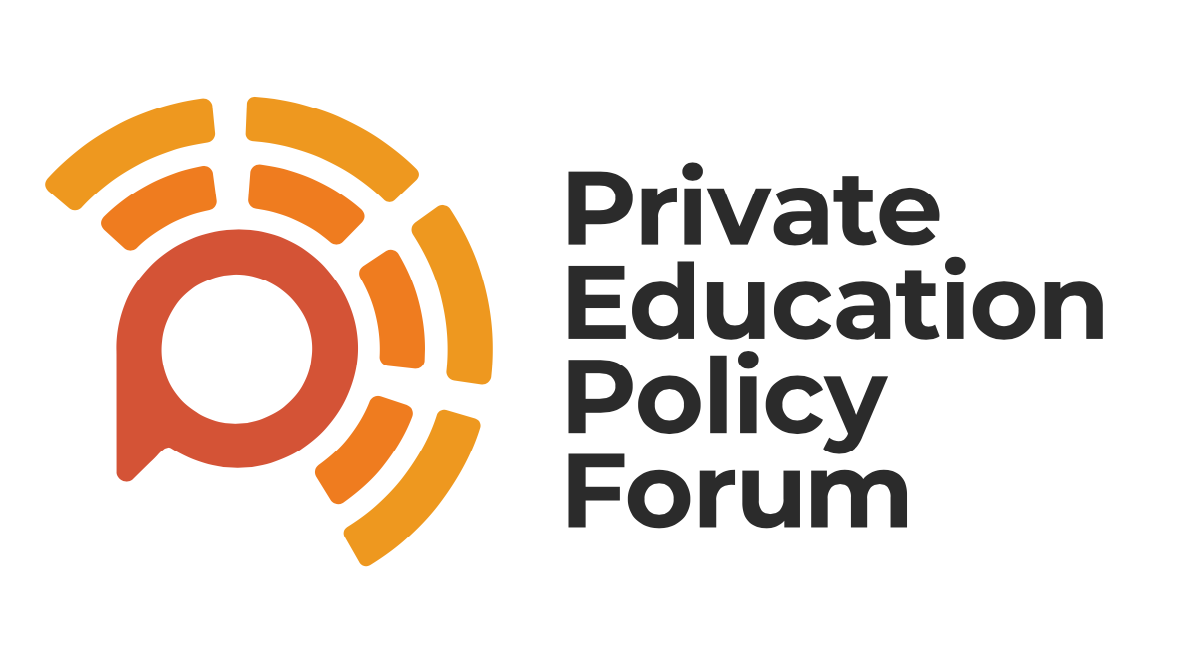
James Lowry
Beautiful grounds, accommodation, amazing facilities, and no need for a PGCE?
When I was thinking about training as a teacher, starting in private schools was too much to resist and I settled quickly into what looked like an idyllic career and lifestyle.
For a long time, it was just that. A-level classes with four intelligent, charming and motivated pupils were wonderful – like the seminars I had only just left behind at university; GCSE classes never had more than 12 students and were always a delight to teach.
Any fears that I had harboured about going into teaching vanished, and any nagging thoughts that I was letting my aspirations down by going into teaching at all were also easily ignored.
When my own children arrived, a further inducement to stay exactly where we were became very clear. The promise of being able to put my children through this school for one third of the fees was impossible to resist. Older colleagues had only paid a fifth of the fees, incredibly.
At the time, I saw a way to give my children the same advantages as their much wealthier contemporaries, and I was too wrapped up in it all, both professionally and personally, to give any thought at all to ideas of inequality.
I had become totally immersed in, and committed to, a world of privilege available only to a very few people (this was a boarding school, so fees were particularly high). It had taken just the few years between my leaving university and becoming a father. For many of our leaders this is the only system of education they’ll ever know.
I fell spectacularly out of love with it, though. Even though it was a crisis and breakdown which actually broke the spell once and for all, when I look back on it now, I see signs of it that – at the time – I was just too busy to have noticed.
Firstly, there was a change of management which was heralded as the dawn of a new era of rising academic standards and professionalism. It was neither – but what it did do was shift the culture much more towards something corporate.
On several occasions students and parents were referred to in meetings as ‘clients’, and along with that was an increasing perception that we were service providers rather than educators and people who just loved their subject.
Secondly, I became head of department. With the promotion came much less engagement with the subject I love, and far more time on middle management problems, resolving timetable clashes, and committees.
Then, as the financial crash of 2007 hit, real concerns emerged about pupil (or client?) numbers remaining high enough to keep the school viable.
This led to a highly successful recruitment drive which saw the demands of the role increase dramatically – but without a corresponding rise in staffing.
Working days became longer; demands on time stretched routines to breaking points, and while the breadth of things on offer grew to accommodate all the new pupils, the depth and quality of what we could all do suffered.
The school had to be a lot of things to a lot of people.
Then, at INSET one September, a newly recruited development officer put extracts from our prospectus up on a screen alongside extracts from those of our most direct competitor private schools in the area.
When challenged to identify which paragraphs came from our prospectus, and which came from those of the other schools, all we could do was guess.
It dawned on me that there might not be anything particularly unique or special about where I was after all.
And although my kids were doing fine, not only were the advantages over their state educated peers becoming less clear to me, but the gulf between them and their wealthier, horse-riding, indoor pool-owning peers at the school was growing wider and more obvious. (One or two of the kids’ parties they attended seem grotesque now).
Twelve hour working days became normal; fourteen hour days were not unusual. It was quite common to do three weeks of these on the trot, since Saturdays and Sundays both had things going on, and ‘exeat’ weekends were few.
Boarding house evening duties were yet another responsibility. Over time, I became tired, stressed, irritable and sleepless. I drank too much. The thought that this was going to be the pattern for the next twenty years until retirement began to cause panic attacks. For the first time since those lovely early days, the job was making me miserable and unwell.
The day that finally did for me began when I dropped my children at the prep school just before 8am so I could get over and prepare for the morning chapel service.
After that, I did a day of lessons and meetings; but since my subject also required activities at lunchtimes most days, lunch was a quick grab-and-run.
Afternoon lessons, then clubs, then over the road again to collect my children (it’s heading for 6pm by this point) and take them home. Even after nearly ten hours at school for them, there was homework and some music practice.
I used the hour I had at home to help them with these as thoroughly as such a small amount of time allowed, and then I went back into school for a boarding house duty which took me to 10.30pm. Fourteen and a half hours gone since drop-off, and I’d be up early the next morning to do it all again.
As I lay in bed staring at the ceiling, the ridiculousness of the thought that I’d spent about 75 minutes with my own children all day, and all of the rest of the time with other people’s children became too much.
The decision, once circumstance forced it, was easy. It was no longer worth the job title, the status, or the salary. So we left, and moved to the opposite side of the country. The children were amazing.
After a few tears they began to look forwards and embrace the change, adapting beautifully and being a far, far greater support to me than I ever felt I deserved.
They went to state primary and secondary schools in our new town, made friends, settled into routines, and are happy, hard-working, and thriving.
I set about my new life and work. I put private schools out of my mind as much as possible, but seeing my children doing well, and above all seeing them with time to spend pursuing their own interests and leisures, I began to wonder what the advantages of private education actually were.
At about this time, Robert Verkaik’s book ‘Posh Boys’ was published, followed not long afterwards by Green and Kynaston’s ‘Engines of Privilege’. They both resonated hugely with me, and helped me on the way to realising that I was much better out of that system.
A rather wonderful tweet about private schools by the political journalist and writer Ian Dunt summed things up beautifully too: “Either they don’t work, in which case they’re fraudulent, or they do, in which case they’re intolerable”.
I’ll conclude by casting a spotlight onto my eldest. Now seventeen, having arrived at the local comprehensive halfway through year 8, and having been initially terrified of seeming like Will in The Inbetweeners, he settled quickly.
He has a small group of close friends with whom he is happy and comfortable. He has never been sporty, and so has been spared many, many hours of shivering misery on the rugby fields of private schools.
His interest in science has thrived due to excellent, supportive and inspirational teachers. He joined the scientific society in the city near to where we live and has attended lectures by Nobel prize winners. He has won a national natural sciences competition as part of a team representing his school.
All of these things have happened during time which would have been swallowed up by compulsory sport, late afternoon timetables, and weekend lessons at private school.
He is independent and free thinking. He is motivated, keen, polite and confident – all qualities which are so often attributed to the products of private education as one of its major selling points.
At the time of writing, he is emerging from months of COVID-disrupted education which the school has managed magnificently via online lessons and remote learning programmes. He has completed and sent off his UCAS form, is predicted AAA for his A-Levels, and has (so far) two very achievable offers from Russell Group universities to follow his great passion at higher education.
All of which begs the question – why spend over quarter of a million pounds at a private school?
These days, I’m amazed that more people are not angry that private schools exist.
Whenever my children mention that they started their school careers at one, their peers are mildly amused, and incredulous at the stories of Saturday school and lessons until 6pm. But they are not angry.
If they knew more about the networks of businesspeople, the school backgrounds of most of our MPs, lawyers, newspaper columnists, financiers and doctors, would they be angrier?
If they were aware at a younger age around 25 per cent of university places would go to the 6 per cent of privately educated students, would they be angrier?
Of course, rights collide; there is a clear and direct collision between the right to spend one’s money how one chooses and the right of all children to have a fair start – but lines have to be drawn somewhere. We have to take a position and be prepared to stand up for it.
With the right support, the brilliance of state schools could render the independent sector unnecessary.
My eldest’s experience is far from unusual – state schools can be wonderful, nurturing, kind and high-achieving places, just as independent schools can be demanding, cruel, and under-performing.
It’s time for many more people to be challenging the assumption that they are somehow better. They are not.
James Lowry is a former private boarding school head of department and a father.




Brilliant, well said. Boarding/public schools are businesses who have a huge need to project their image of child care and academic excellence. I was seriously abused and I have since found out the school knew, but hid it. (have we heard that story somewhere else?). As an examiner for 20 years, I often visiting public schools and I saw every trick in the book used to massage the pupils work to improve their grades. If there was any possibility that a pupil would get a poor grade/fail they were not entered. League tables were far more important that the pupils.